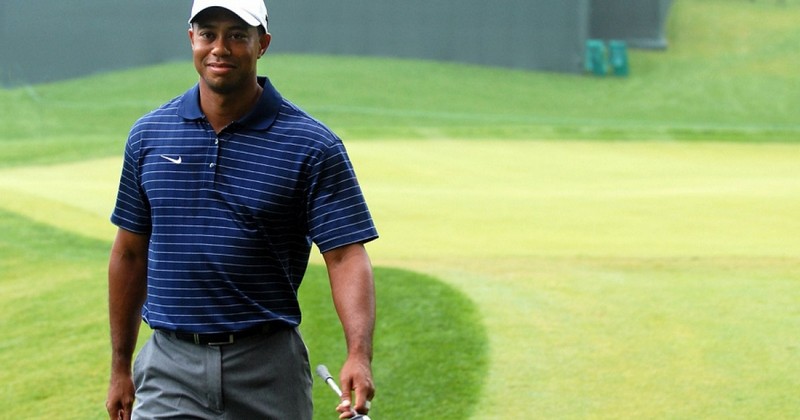The true power of Mindfulness in sport

The use of Mindfulness can help to take control of the situation in the sports context.
Mindfulness, or mindfulness, is a state of mind oriented to the present moment, which is not only effective in treating underlying mood disorders in elite athletes. that is not only effective in treating underlying mood disorders in elite athletes, but also makes it easier for them to perform as they really know how.
Mindfulness in sport as a state of mind
Great athletes can develop difficulties that lead to anxiety disorders, substance use disorders, eating disorders or depression, and it has been shown that the practice of Mindfulness is an effective training against it. (Evans, S. ,2010).
In addition, Mindfulness is a technique that consists of experiencing life and the sport we practice as it is.. Far from the judgments, opinions and evaluations that the mind has to make of it all. It is an approach to reality without evaluating whether it is good or bad. It allows us to perceive how reality is in the present.
Practicing Mindfulness in sport has to do with focusing on what we really know how to do in the game without being carried away by sensations, emotions and thoughts. by the sensations, emotions and thoughts that arise while we compete (Thompson, R.W., Kaufman, K.A., Petrillo, L.A.D et al. ,2011).
High-performance athletes who practice Mindfulness
There are athletes who have acknowledged on occasion that they practice meditation and body awareness exercises (yoga) oriented to the practice of Mindfulness, seeking a total integration of mind and body in competition. Among some of them, we find Lebron James, Roger Federer, Pau Gasol, Emilio Butragueño and Tiger Woods..
In fact, Novak Djokovic publicly acknowledged the use of this mental training as part of his preparation for competition; "I use an important method to conserve my energy level, even when negative feelings seep in. I practice yoga and meditation daily and it is just as important as physical training."
That players are fully in the game
The idea of integrating Mindfulness into sports has to do with gaining greater ease and confidence on the playing field..
Feeling that giving the maximum of ourselves is something that comes naturally; this would be one of the objectives of integrating Mindfulness in sports practice. That is, to enter a state of "flow" or fluidity both mentally and physically where the athlete develops all his game and offers his best version unconsciously (Csikszentmihalyi, M. ,2008).
As an example of this, Michael Jordan even made a basket in the middle of a game with his eyes closed..
His technique was so mechanized and mentally so developed in his consciousness the image of the basket, the contact of his body with the court, with the ball, the degree of strength and movement that served him to score points, that he seemed to be an immortal being in some moments of his career.
His game flowed regardless of the conditions that accompanied him.
What Mindfulness brings to sports
With the practice of Mindfulness applied to sport we learn to coexist with the negative feelings and thoughts that arise in complicated moments without affecting our performance.
That is, when it is our turn to compete, we try to do our best. It is clear that sometimes things happen that we can not control as a referee failure, an adverse result or what the opponent decides. Therefore, another focus when training ourselves in mindfulness in competition is oriented to increasing our ability to "be" with frustration, fatigue, Pain and tiredness, so that this is something that is obviously there, but not what decides how we want to perform.so that this is something that is obviously there, but not what decides how we want to perform.
Mindfulness allows us to be focused on what does depend on us, and that is why there is data that confirms this.That is why there is data that confirms an enhancement of performance when there is attention (Summers, J. J., Machin, V. J. and Sargent, G., 1983).
Sports and the practice of Mindfulness are similar in the sense that both require a receptive and open consciousness. a receptive and open consciousness to the game is requiredThis will enable us to make better decisions in real time.
Why practice Mindfulness in competition?
When athletes are strengthening the practice of Mindfulness, that feeling of flow in the game increases, and it is something that we are fortunate to be checking with athletes who are encouraged to collaborate with us.
It is a tool that benefits those who decide to try it and even notice its effects in other areas. even notice its effects in other areas of their personal lives.. In other words, the way of working that I have been developing with athletes and sports entities that prepare competitions of the magnitude of an Olympic Games is oriented towards something like this:
"If you pay more attention, you perceive more. If you perceive more, you can better grasp the needs of the game. If you understand the needs of the game better, you can make better decisions".
Como consecuencia, puede que te sea más fácil conectar con tu mejor versión pese a las adversidades, ya que la mente está entrenada en volver a lo que importa en ese momento, pase lo que pase.
Referencias bibliográficas:
- Evans, S. (2010). Review: mindfulness – based therapies effective for anxiety and depression. Evidence- Based Mental Health 13:116.)
- Thompson, R.W., Kaufman, K.A., Petrillo, L.A.D et al. (2011) One year follow-up of mindful sport perfonmance enhancement (MSPE) with archers, golfers, and runners. Jornal Clinical Sport Psychology 3 (4): 291-302)
- Csikszentmihalyi, M. (2008). Flow: The psychology of Optimal Experience. Nueva York: Harper-Collins.
- Summers, J. J., Machin, V. J. y Sargent, G. (1983). Psychosocial factors related to marathon running. Journal of Sport Psychology 5: 314 - 331.
(Updated at Apr 13 / 2024)